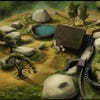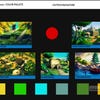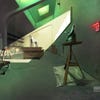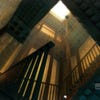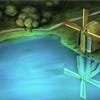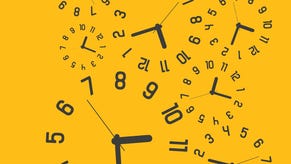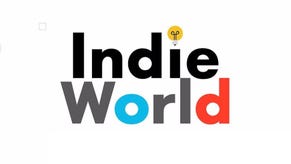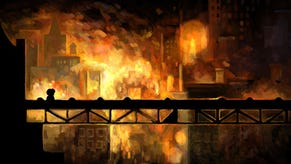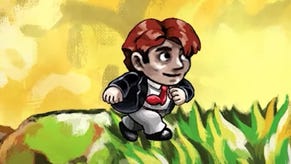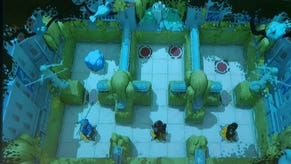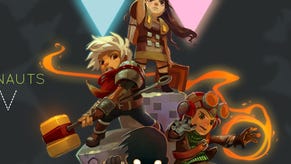Jonathan Blow in his own words
The Braid creator in his most revealing interview yet.
Yes, sort of. What I have showed is a ramp up at the beginning of the game of concepts. The black and white spot puzzles, if the game did that and only that level of interest, it wouldn't be something you'd want to play for five or 10 hours. Some people might, but a lot of people wouldn't. It's just a little simple.
The game doesn't stop there. It keeps building in complexity and intensity and in things you find to do. I actually don't know how long of a game it'll be in terms of an average playtime, but I would guess it's at least 10 hours, right now.
What I showed was walking around this courtyard and solving this simple puzzle. That would not last for 10 hours. The question is then, what does? There's just a bunch more in the game I haven't shown yet. I will show it at some point, when it's ready, but it's a little early.
No and yes. When I was working on the game I was being very detail-orientated and there were a lot of things I cared a lot about, so I was trying to make a high quality thing. But at the same time it was really unlike a lot of videogames.
Before you can really play a level you get hit with these screens of text. What is that? Very unusual thing to do in a videogame. It's hands-off. It lets the player approach challenges. It doesn't sound like most games. The way the music gets warped by rewind is a philosophical decision. But in the abstract, if your goal is to make the game sound really good, it's like, oh, you're messing up the music. There are all these weird decisions.
So I felt some people out there were going to appreciate this game as a whole, but I expected it to be maybe a little more divided, where some people loved it and some hated it. That is how it was but the percentage of people who hate it is at least in terms of critics smaller substantially than the people who love it. That's why the Metacritic is pretty high.
I knew it was amazing for me. And then the question is, is it going to be amazing for people reviewing it? I hope, for enough of them. Braid was a very exploratory game. I figured out what the game design was as I did it, as the game showed me things. At some point, when most of it's there, it's like, wow, this is really cool and I'm really excited to make this game.
But of course that was in year one of development out of three-and-a-half years. I lose that feeling because you just get so used to it. You're with it every day and you're working hard on it every day. I just had to have faith. I had to remember that old feeling I had about how exciting and neat this was.
Two years after that I had to have faith that my judgement was good and this really was that exciting, and when I finally release it other people will find it that exciting, which apparently enough people did. There's that magic moment, but you don't know if other people are going to see it.
A big part of game design that's very subtle, it's not just about rules and game mechanics, but there is a big communication aspect. That's one of the things I find myself specialising in as a game designer. The Witness is a lot about communication. You have this exciting thing you see, and a big part of your job as a designer is how do I communicate this to enough of the players?
Some people are going to get it right away. Some people might not see it unless I make the graphics really nice and they don't detract from it. When I make the graphics nice I have to make sure they don't distract from this important thing that's happening. Maybe I need to take out this game mechanic because it's not central to the thing. It's like if you were pruning a bush top to make a nice sculpture or something, but the sculpture was a communication.

